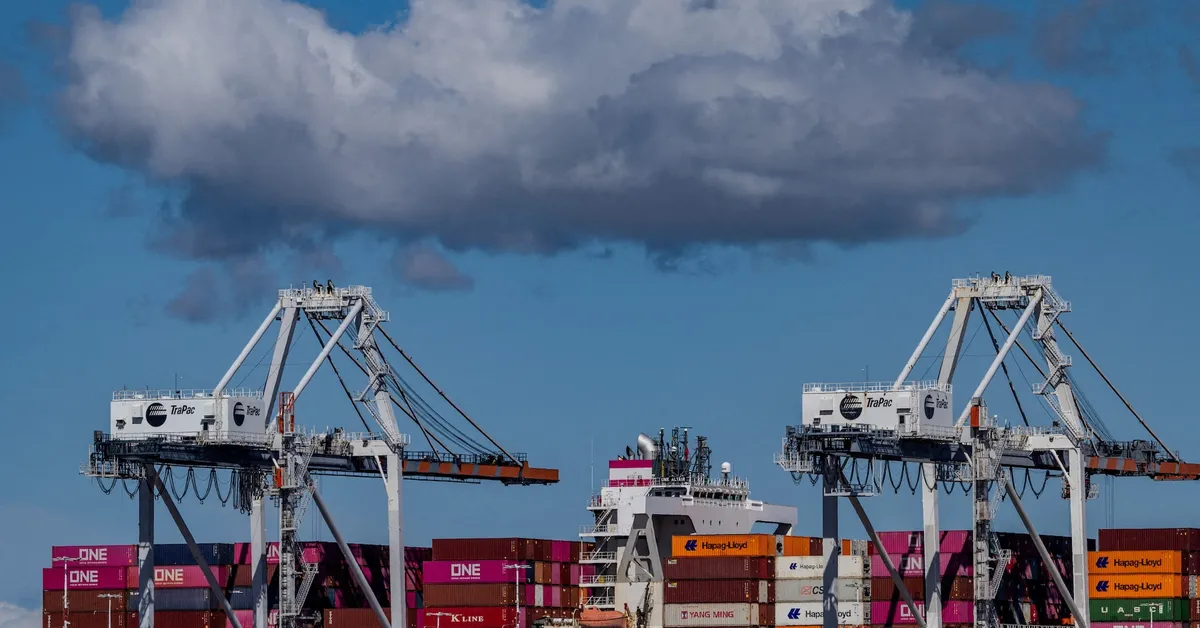
According to a report from The Washington Post on April 1, 2023, White House aides have developed plans for imposing tariffs of approximately 20% on a significant portion of the $3 trillion worth of goods imported annually to the United States. This announcement comes as President Donald Trump gears up to reveal reciprocal tariffs, leading to heightened anxiety among global businesses, consumers, and investors regarding an escalating global trade war.
For several weeks, President Trump has emphasized April 2 as a pivotal date for what he calls Liberation Day, marking his intention to implement bold measures that challenge more than fifty years of established global trade norms. These norms have historically reduced barriers to international commerce, yet Trump argues they have disadvantaged American products and labor.
On Sunday, Trump indicated that the upcoming tariff measures would target all nations, reiterating the White House's stance on Monday that any country treating Americans unfairly should brace for the impact of these new tariffs. However, White House advisers have stated that no final decisions have been made, leaving several options still on the table.
The Trump administration is also contemplating utilizing the substantial import revenues expected from these tariffs for a potential tax dividend or refund, as reported by three unnamed sources familiar with the matter. As global investors await further details, the implications of these tariffs on the economy remain uncertain.
Already, the Republican president has enacted tariffs on key sectors, including aluminum, steel, and automobiles, along with increased tariffs on all goods imported from China. As the critical date of April 2 approaches, indications are emerging that the U.S. economy, which has experienced robust growth in recent years, may be losing momentum. This slowdown is attributed to the uncertainty surrounding Trump's unpredictable approach to economic policymaking, particularly regarding trade.
A series of surveys conducted among households and businesses reveal a decline in confidence regarding the economic outlook. Many express concerns that Trump's tariffs could trigger a resurgence in inflation, a fear that lingers in the minds of consumers who recently experienced rapid price increases. Consequently, rattled investors have reacted by aggressively selling stocks, resulting in a staggering nearly $5 trillion loss in the value of U.S. stocks since mid-February.
The repercussions of this tariff strategy extend beyond American borders. Recent business surveys indicate a weakening of factory activity across Asia, as the intensifying tariff war and dwindling global demand dampen business sentiment, casting a shadow over future expectations. Meanwhile, initial signs of a manufacturing recovery in Europe are clouded by concerns that the recent uptick in activity may be largely attributed to buyers preemptively placing orders to avoid the impending tariffs.
Economist Cyrus de la Rubia from Hamburg Commercial Bank has suggested that businesses should prepare for potential backlash in the coming months as these trade policies take effect. As the situation develops, it remains crucial for consumers and investors alike to stay informed about the evolving landscape of U.S. trade policy and its global repercussions.
Reporting by Susan Heavey in Washington and Dan Burns in New York, with additional contributions from Gursimran Kaur in Bengaluru. Edited by Andrew Heavens, Frances Kerry, and Chizu Nomiyama.